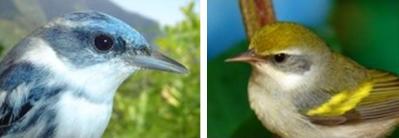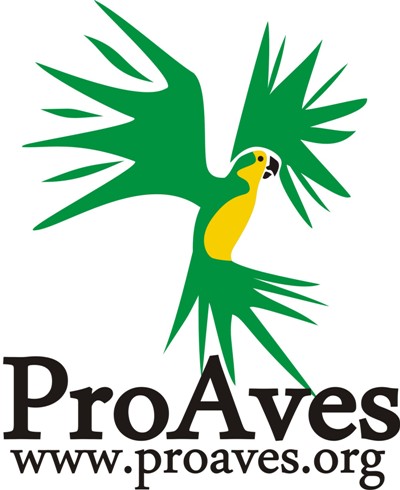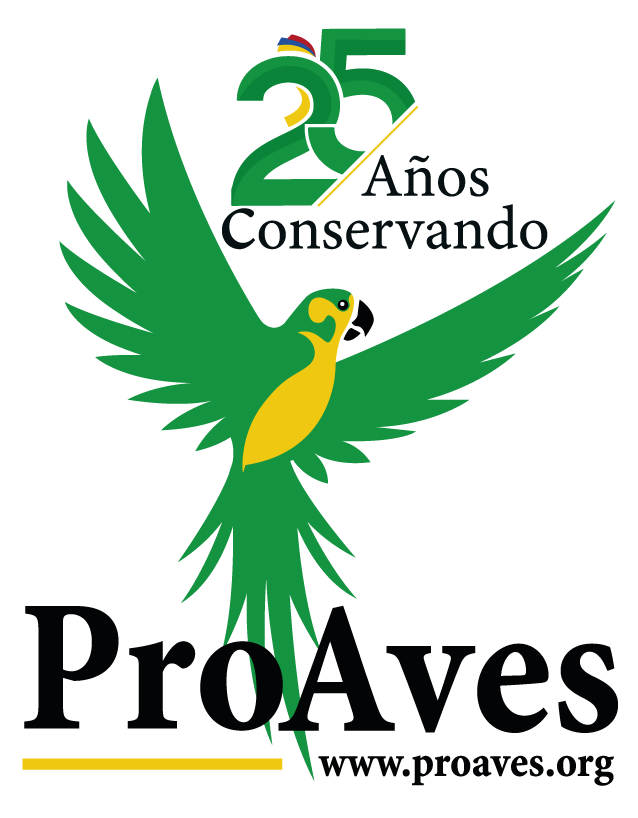Wednesday 11 June 2008.
The alarming decline of migratory birds has prompted lawmakers to propose an early reauthorization of a successful conservation program, the Neotropical Migratory Bird Conservation Act (NMBCA). Representatives Ron Kind (D-WI) and Wayne Gilchrest (R-MD) have introduced H.R. 5756 which reauthorizes NMBCA at a significantly higher funding level to multiply the successes of this program.
Saving Migratory Birds for Future Generations: The Success of the Neotropical Migratory Bird Conservation Act, a new report by American Bird Conservancy (ABC), details the disturbing downward trend in the populations of many migratory species and its causes, and documents the effectiveness of NMBCA, a program that is helping to stem this decline and conserve migratory birds.
“By passing this legislation we can help prevent America’s native birds from disappearing,” said Darin Schroeder, American Bird Conservancy’s Executive Director of Conservation Advocacy. “Nearly half of our songbird population is now in decline or facing serious threats; the good news is that it isn’t too late to turn that around.”
 |
|
Cerulean Warbler and Golden-winged Warbler, two threatened migratory bird species. |
“Of the 178 continental bird species included on the American Bird Conservancy/Audubon WatchList of birds of highest conservation concern, over one-third, 71 species, are Neotropical migrants,” said George Wallace, Ph.D., Vice President for International Programs for American Bird Conservancy. “At least 29 species of these migratory birds have experienced estimated population declines of 45% or greater since surveys began in the 1960s. Several species, the Cerulean Warbler and Olive-sided Flycatcher, have declined more than 70%.”
Representatives Kind and Gilchrest issued the following statements when they introduced H.R. 5756:
“The Neotropical Migratory Bird Conservation Act has a proven track record of reversing habitat loss and advancing conservation strategies for the broad range of Neotropical birds that populate America and the western hemisphere,” Rep. Kind said. “The public-private partnerships along with the international collaboration it provides are integral to preserving vulnerable bird populations. Expanding this program is vital to achieving conservation goals critical to our environment and economy.”
“The Neotropical Migratory Bird Conservation Act is helping ensure that shorebirds and songbirds that migrate through Maryland have healthy and abundant habitat so they can keep returning here each year,” said Rep. Gilchrest. “Just as importantly, this federal program is a good value for taxpayers, leveraging over four dollars in partner contributions for every one that we spend.”
American Bird Conservancy and the Bird Conservation Alliance, a broad network of bird clubs, science and conservation organizations, have launched the Act for Songbirds campaign, to support reauthorizing the legislation and boosting funding levels each year. Citizens are being encouraged to contact their Representative in support of the legislation at http://www.abcbirds.org/action.
“This legislation needs to have the united support of the birding community behind it,” said Alicia King, Director of the Bird Conservation Alliance. “This is something that everyone who loves birds can do to make a difference.”
“Incredibly, NMBCA remains the one of the very few significant funding sources specifically dedicated to bird conservation in Latin America,” said Sara Ines Lara, Executive Director of the Colombian conservation group Fundación ProAves. “Thanks to NMBCA, ProAves has been able to collaborate with American Bird Conservancy to launch a variety of significant conservation initiatives, including establishing the Cerulean Cerulean Warbler Bird Reserve-the first reserve specifically established for a Neotropical migrant landbird in South America.”
Background
NMBCA supports partnership programs to conserve birds in the United States, Canada, Latin America, and the Caribbean, where approximately five billion birds of over 500 species, including some of the most endangered birds in North America, spend their winters. Projects include activities that benefit bird populations such as habitat restoration, research and monitoring, law enforcement, and outreach and education. Between 2002 and 2007, the program supported 225 projects, coordinated by partners in 44 U.S. states/territories and 34 countries. More than $21 million from NMBCA grants has leveraged over $95 million in partner contributions. Projects involving land conservation have affected about 3 million acres of bird habitat.
NMBCA currently provides a maximum authorization of $6 million per year; last year Congress appropriated $4.5 million, a $500 thousand increase from the previous year. Under the new law, that amount would increase to $20 million by 2015. Grants require matching funds from other non-federal sources, and are distributed by the U.S. Fish and Wildlife Service (FWS). Agency staff reports that they currently receive many more requests for high quality conservation projects than they can currently provide grants for. FWS lists 341 bird species as Neotropical migrants: http://www.fws.gov/birdhabitat/Grants/NMBCA/BirdList.shtm.
Act for Songbirds Press Conference June 11, 2008
All the conference:
http://www.abcbirds.org/newsandreports/audio.html
Sara Lara, Executive Director of ProAves:
http://www.abcbirds.org/newsandreports/audio/saralara.mp3
{youtube}Z3bGTl-hFrY|425|344|1{/youtube}
 |
 |
